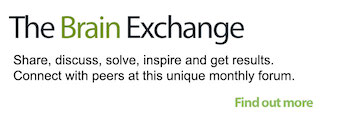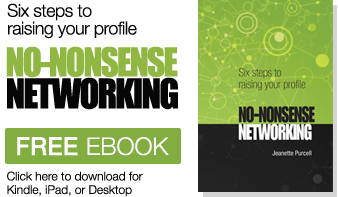
Showing all pages regarding advice.
5 reasons why networking matters
There are many reasons why you should aim to be an effective networker. It’s good for you, it’s good for your career and it’s good for your business. What’s more, if you approach networking with the right attitude you will enjoy the activity and want to do it more. Here are my top five reasons why you should aim to be a great networker:
Reason #1 – We do business with people we like and trust
It’s popular to believe that buying has become a depersonalised activity and that the hiring of staff is based purely on an objective assessment of a candidate’s skills. But the evidence is that, even today, most transactions in business are about relationships. We do business with people we like and trust. You can achieve a certain amount through marketing and advertising campaigns and it is possible for selling to be a completely anonymous business, but at some stage your customer, client or prospective employer is likely to come face to face with YOU. Their decision to buy or hire will be influenced by a range of factors which, at some level, will almost certainly include how much they like and trust you. Relationships are at the heart of any successful business. And so it is important to invest time in making connections, building relationships and maintaining those connections over time.
Reason #2 – Word of mouth marketing really works
I have been running a business for several years and ALL of my clients have come to me through word of mouth. Now, that’s not unusual for my type of business but all companies, regardless of size or industry, rely to some extent on word-of-mouth marketing.
Surveys into the impact of online marketing show that peer recommendation is the most trusted form or advertising, whereas online search, banner advertising and other ads are among the least trusted (NIELSEN – Global Online Consumer Survey – July 2009). Even with the explosion of online review applications (eg, Yelp, Google, Urbanspoon), research clearly demonstrates that word of mouth—product recommendations made by family, friends, work colleagues, or neighbours —is still the most effective way to win new customers. (The Harris Poll #74, June 3, 2010). At the same time, many people fail to recognise the value of customer referrals and the power of networking as a form of word-of-mouth marketing.
Reason #3 – Being good at your job is not enough
Like it or not life is not a meritocracy. The truth is that your skills, qualities and experience are likely to go unnoticed unless you are prepared to promote yourself. This means seeking opportunities to communicate what you have to offer and your career aspirations. I’m not talking about trotting out a sales pitch to everyone you meet, but I am suggesting that a more proactive approach to advancing your career is required. And this involves building a useful supportive network.
Reason #4 – Well connected people are ‘in the know’
The surest way to pick up on a new opportunity – whether it’s a new client, new job or changes in your market – is to be well connected. How many times have you heard about a job vacancy or a potential new project through a friend or work colleague? The grapevine is a wonderful and powerful communication channel and you should use it. By developing your networks you not only stand a better chance of knowing what’s going on but you are also more likely to be remembered when one of your connections wants something that you offer. Networks are vital as a means of sharing knowledge and information. What’s more, a good networker who enjoys meeting and learning about other people will broaden their outlook and develop a useful body of skills and knowledge, making them an interesting person to know.
Reason #5 – Networks are a valuable source of support
Networking is not just about finding opportunities and advancing your own interests. A good network is one that is based on give and take, trust and respect. There are people in my network who I know I can ask for help when I am thinking through a new idea or dealing with a particularly difficult problem. And they know I will do the same for them in return. If you build your network in the right way, you will find that it can be a valuable source of support and advice.
This is an excerpt from Jeanette Purcell’s “No-Nonsense Networking” – 6 steps to raising your profile.
No-Nonsense Networking:
Six Steps to Raising Your Profile
A free eBook by Jeanette Purcell
Through thirty years of experience in business and academia and countless conversations with great networkers, I have observed that surprisingly few people network effectively. Yet good networking skills are essential if you want to get on in business and have a fulfilling career.
This is why I wrote this book. 22 pages full of practical tips and ideas on how to build long-lasting successful business relationships. It is for anyone who wants to grow their business, extend their business networks or raise their profile within their profession or working environment. If you are looking for a job or preparing for promotion, this book is also for you.
In No-Nonsense Networking, I take you through a practical approach to building a successful network in six easy steps:
1. Developing the right attitude.
You need to approach networking in a positive frame of mind. We debunk some of the myths about networking and deal with the common issues that hold people back from being enthusiastic and confident networkers.
2. Preparing your pitch.
With the right attitude and a clear idea of what you want to achieve from your networking you are ready to write your ‘pitch’. We look at how to tell your story and present your skills in a concise, positive and memorable way.
3. Managing your existing networks.
It’s not only about making new connections but also about managing your existing contacts. How well are you managing and tapping into your existing networks?
4. Preparing to network.
Successful face-to-face networking begins with thorough preparation. We will cover the preparation required for every networking situation.
5. Networking events.
From social gatherings to business meetings we look at how to manage networking situations, make the right connections and get results.
6. Building and maintaining the relationship.
Truly successful networks require maintenance. We consider the follow up required to convert a new connection into a productive business relationship and how to sustain and grow your networks over the long term.
Each step is explained in comprehensive detail, with achievable exercises at the end of every section. After reading this book, you will be better equipped to network confidently, successfully and intelligently.
Download for free
You can download this eBook for free from any of the following sources (click on the icons to open in a new window).
Download for free from Amazon Kindle Store, iBooks or as a PDF
About the author
Jeanette Purcell is the founder and Managing Director of Jeanette Purcell Associates, specialists in leadership development and change management. She is a leadership specialist, providing coaching, lecturing and consultancy services in all aspects of leadership development and organisational change. Her focus is on giving leaders and their organisations practical solutions that have a measurable impact on performance.
Jeanette is a Visiting Lecturer at Cass Business School and has over 30 years practical experience in management and business leadership. Until establishing her own business, Jeanette was Chief Executive of the Association of MBAs (AMBA), the global accreditation agency and network for MBA students and graduates. In this role she succeeded in raising the profile of the MBA as the premier qualification for business leaders and developed a range of services and support for MBA graduates throughout the world.
Jeanette is an accomplished international public speaker. She presents and writes on issues relating to leadership, business development and business education and has been instrumental in the delivery of Cass Leadership programmes in Dubai. Current corporate clients include Pfizer International where Jeanette delivers ‘networking skills’ training to high potential female managers.
In 2013 Jeanette founded the Brain Exchange, an exclusive forum for business professionals to exchange advice, knowledge and support in a confidential and professional environment. The Brain Exchange meets monthly in London and is achieving growing recognition as a high quality business network.
How to be an engaging conversationalist

How many times have you had a conversation with someone whose opinion about you really matters and walked away feeling dissatisfied about how it went? Sometimes we fail to present ourselves positively or forget to mention a really important point. Other times we might feel we lost the opportunity to build a rapport with the person. Were you aiming to build a better working relationship with them? If so, how likely are they to want to talk to you again?
There are many work situations where the pressure is on to make a positive impression during a short conversation – these include interviews, networking events and meeting a new boss. I’m interested in the conversations where the objective is to build a rapport and develop a positive working relationship. You might want to get to know an influential, senior person in your organisation. Or perhaps you are working on a project with a client and want to extend your networks to the key decision makers within the company. Let’s say you’ve arranged a meeting with that all important influential person. Great! That’s the first step. Now, how can you make the most of this opportunity to impress?
First be clear about the objective of the conversation and prepare for it. Anticipate their questions and have some answers ready, or rehearse the way you will present your ideas. If there is no particular agenda then treat this as an opportunity to do some fact-finding. This is a great way to demonstrate interest in the person, their role and their objectives. It involves a lot of listening and the use of intelligent questions. Here’s a useful crib sheet for this type of conversation. I have used this on many occasions to help high-flying Executives who find themselves lost for words when it comes to small talk! It’s very simple and surprisingly effective.
1. Open with a brief introduction and explanation for the discussion. “I’m interested in getting some feedback on X” or “I’d appreciate some advice on X” or even “I’m on a fact-finding mission..”
2. Use open questions. (Who? What? Why? How? When?) “Why do you think that’s happening?” or “Who would be a good person to speak to about that?” or “What do you think would improve that situation?”
3. Use affirmative statements. “I see” or “that’s interesting”
4. Check your body language. Smile, nod or show concern as appropriate. Keep an open posture (arms uncrossed, lean forward), maintain some eye contact and don’t fidget!
5. Explore the relevant issues further. Direct the conversation by picking up on points that are useful to you. “Can you expand on that?”
6. Clarify and check understanding. “So, if I have understood this correctly…” or “so I think you’re saying that….” Or “so just to be clear…”
7. Summarise and suggest next steps. “So, can I just recap – (points a, b, and c)” or “I’d like to come back to you by (date)…with some options…”
8. Thank them! “I really appreciate you taking the time to see me. It’s been very useful.”
Every situation is different and you’ll need to use some judgement about what is appropriate or effective in each case. The point is, be prepared to listen and fully attend to the other person – sounds easy but very few people can do this well.
For more listening tips see JPA’s Top Ten Tips for Effective Listening.
Top Ten Tips for Effective Listening
It’s networking Jim, but not as we know it

I was coaching a client this week who recently became self-employed after working as a project manager for many years. She had already completed a couple of jobs on a freelance basis and there were more in the pipeline. “The thing is” she said “all the work I’ve done so far has come through word of mouth. At some point I will have to advertise and do some real marketing”. I queried this with her, suggesting that she must have some great networks that she could tap into for more business. “Ah, but I’m no good at networking” she replied “I haven’t got time to go to all those events and anyway that sort of thing scares me!”.
Now, this conversation highlights two very common misunderstandings about networking.
The first misunderstanding is that acquiring business through word of mouth is somehow not ‘real’ marketing. More than that, there is a tendency to assume that referrals or personal recommendations are more about luck than successful marketing. Absolutely not! You don’t get referrals unless you have a great reputation and can be trusted to do a good job. If you are proactive about maintaining the relationships that you have with people in your industry you will find that these relationships lead to new connections and new business. Word of mouth is THE most important form of marketing for small businesses. Don’t dismiss or ignore it!
The second misunderstanding is that networking is all about going to events, receptions and conferences. Most people will tell you that they associate the word ‘networking’ with the experience of walking into a drinks reception full of people they don’t know and being expected to ‘work the room’ (dreadful phrase). I can’t remember the last time I went to a networking event and yet I am networking all the time. Yes, you’ve got to get out there and meet people to build your business, and you’ve got to do some selling. But you don’t have to attend events or put yourself into unfamiliar situations to achieve this. Networking is about building relationships with people you like, admire and trust. Start building your networks by talking to people who already know and love you. Ask them for advice, ask them for introductions to people who might want what you’re selling. This form of networking is ten times more successful than cold calling, expensive advertising or collecting a few random business cards at a networking event.
My client visibly relaxed when she thought about networking differently. It’s not hard work, it needn’t be scary, but good networking is essential to developing your business.
Don’t miss JPA’s Master Class “Positive Impact and Confident Networking” on 25 February 2014. Early bird booking discount applies until 28 January 2014. Find out more here http://jeanettepurcell.com/jpa-master-class-series/
How Mary Berry’s boss changed her life
In a recent interview Mary Berry, food author and queen of cakes, recounted the first time she was asked to write a cookery column for a newspaper. She was terrified and had no idea how to go about explaining a new recipe to readers. However, she picked up on the advice of her boss who said “just write as if you were showing me how to cook” – and that is exactly what she did. It is this style of writing – giving clear and practical advice to budding cooks – that helped to establish Mary Berry as a popular and accessible food author. There is little doubt that, for Mary, the advice of her boss was life changing.
Most of us can remember a time in our careers when we have learnt valuable lessons from others, usually, but not always, from a manager or more experienced colleague. Little pearls of wisdom or remarkable acts we have witnessed tend to stay with us and help us to improve. I had a difficult and demanding boss when I was a young manager who, despite his faults, demonstrated to me the importance of regular communication with customers. “It almost doesn’t matter what you say Jeanette” he said “so long as you say something to your customers, and often.” I was about 28 and hadn’t, until then, appreciated the benefits of good communication and the value of keeping all your stakeholders in the picture. I have never forgotten and continue to apply that advice.
Of course, learning from others and benefiting from good role models depends on having the good fortune to work with people who are willing and able to pass on their wisdom and knowledge. But it also depends on our own ability to observe and listen to what’s going on around us. When I am coaching I often ask clients to identify someone they have worked with who they admire and respect and then work out what these people do that makes them effective. Most of us work in environments which are a rich source of learning, but we will only learn if we are open to new ways of working and inquisitive about the nature of success in business.
Mary Berry could have remained a competent but unknown journalist if she hadn’t listened to and applied the advice of her boss. So be observant at work, listen carefully to others, be willing to consider new ideas or different ways of thinking about business problems. You never know, you might just learn something that changes your life.
Galloway’s lesson in public speaking
Two male public figures have recently got themselves into trouble for their comments on sensitive issues. First George Galloway, not known for his tact, waded into the Assange affair by introducing the bizarre notion of “sexual etiquette” in the context of rape. At the same time, in the US, Missouri congressman Todd Aiken suggests that there is a special case to be made for ‘legitimate rape’. Both parties (Galloway and Aiken) clearly regret their choice of words and have since been engaged in damage limitation exercises. But the damage is done. In fact the damage gets worse for George Galloway who has just sparked another storm by using a derogatory term for disabled people on Twitter.
I have no intention of getting into the rape debate – that’s not the purpose of this piece. But I think these recent episodes demonstrate the importance of taking some time to think before you speak. Politicians are often caught out when faced with difficult questions without notice. But we are all at risk of humiliation and embarrassment (or worse) now that Twitter, Facebook and social media in general encourages spontaneous communication.
I worked with two senior managers recently who were aiming to improve their ability to present themselves with confidence. They wanted to be able to communicate clearly and fluently, so that they could influence others and gain credibility with peers and clients. Both were enthusiastic, intelligent people with a lot to say. When we first met I asked them to deliver a presentation to me. Both presentations were full of information and moved along at a fast pace. The managers spoke very quickly , sometimes deviating from the topic, sometimes stumbling over words and ultimately failing to get their message across.
When we reviewed their presentations they both admitted to being nervous. “The more nervous I get, the more quickly I speak” said one. “Then as I start to panic, I use all the wrong words and lose my thread entirely – I completely lose my confidence.”
I asked them both to rethink their presentation, paring it down to the most essential points and the key message they want to deliver. Then I asked them to deliver the first five minutes of the presentation to me at a snail’s pace. They had to speak as clearly and as slowly as possible, pausing properly for each comma and full stop. The result was remarkable. Both found that the slower pace gave them time to articulate clearly and to think while they spoke, so that they could anticipate the next sentence and the words they wanted to use. By giving themselves extra time they lost their nerves – and gained control.
Both managers have been practising the ‘slow’ technique regularly and use it when preparing for presentations. Obviously in real situations they speak at a normal pace (which is always going to be a bit faster than it feels) but neither of them rush or gabble as they used to. Neither do they end up getting the words wrong or losing the thread – they now have time to think before they speak.
My first piece of advice to Galloway and Aiken would be to stay away from the topic of rape in the future. But whatever the subject they might also benefit from slowing down a little rather than rushing to an answer. In fact perhaps we could all try a little less spontaneity and a little more reflection before opening our mouths.
Jeanette Purcell at City Business Library
10 reasons why you should get an MBA
Free lunchtime event, City of London, City Business Library
Thursday 10 May
12.30 – 1.30pm
Walbrook Room
Are you considering an MBA? Or are you wondering whether a member of your staff should take the qualification? The MBA is the leading international qualification and can represent a life-changing experience. Jeanette Purcell will offer 10 reasons (or more!) why you should get an MBA. But you need to understand what MBA study involves, how to choose the right programme, how to cope with the demands of the course. Before founding “Jeanette Purcell Associates” Jeanette was CEO of the Association of MBAs (AMBA). Her expert advice will help you to understand the MBA’s value and how to get the best return on your investment.
Free, but you must book in advance 020 7332 1858; cblevents@cityoflondon.gov.uk
Ten top tips for getting on Board
There has been a flurry of discussion recently around women in the boardroom. This follows the publication of the Davies Report which called on the FTSE 350 companies to increase the percentage of women at the board table to 25% by 2015. Currently 18 FTSE 100 companies have no female directors at all and nearly half of all FTSE 250 companies do not have a woman in the boardroom.
The discussions have covered a range of questions: Are imposed quotas a good thing? (See my earlier blog.) Is there any evidence that companies with more diverse Boards are more effective? Why don’t women make it to the top? Do women simply have different aspirations and views of what success means?
These are all important questions, but I have seen very little practical advice emerging from the Davies debate. If a woman is interested in getting a seat on a board, what steps should she take? Here are some top tips (with thanks to Sue O’ Brien, CEO of Norman Broadbent for her input) . And guess what? This advice applies to men too!
- Do some research first. What industry and types of companies are you interested in joining and in what capacity? You need to be able to clearly articulate what it is you are looking for before you begin your search.
- Be clear about what you are offering to the companies you have chosen. Why should they be interested in you? What can you add to their Board? What are your distinctive skills and qualities and what evidence can you produce to support your past successes?
- Use Head Hunters to help you in your search. But be prepared (see above) before you meet them. They will respond if they can see you have done your homework.
- When dealing with Head Hunters don’t wait for them to take the initiative on the agreed actions and follow up. You need to do your bit and they will take you more seriously if you are taking the lead where you can.
- If approaching a company direct to enquire about a Board role consider sending them a short narrative in the form of a bio rather than your CV.
- Protect your CV. It is tempting to pass on your CV to anyone who looks like they may be able to help you. But hand it over with care. Your CV is your brand. Do you know who it is going to? How will it be presented?
- Make sure the Board role you are considering or are offered is the right one for you. Does the position really fit with your background and experiences? What will this company do for you? Do you subscribe to their values? Be brave enough to turn the position down if it doesn’t feel right.
- When considering a role seek out those people who have recently left the Board to see if they’ll chat to you. You might get a more accurate account of the company from them.
- Don’t under estimate the time involved. It is hard work if you are going to do a proper job. Experts estimate that you can expect to spend 25 days a year on Board work as a Non-Executive.
- Network, network, network. Make it known that you are looking for a Board appointment. Someone somewhere will be on the look out for talented Board members.
Good Luck! If you get the right position it will be a fulfilling and valuable learning experience.
Job interviews – 6 top preparation tips

If you’ve been shortlisted for a job interview, congratulations! You’ve obviously put in a good application and have demonstrated, at least on paper, that you have the experience and skills required for the job. Now you have to outshine the other shortlisted candidates and persuade the panel that you are the best person for the job. The interview is your opportunity to make a positive impression so don’t blow it! Preparation is key – here are six tips to help you get ready for the big day.
- Research the company you are applying to work for. Look at the website and the annual report. Do you know anyone who has experience of the company? If so, ask them for some advice or information that might not be in the public domain.
- Think about what evidence you can provide which shows that you meet all of the job requirements. Prepare some examples which demonstrate your experience and skills. It is not enough to say ‘I am really good at dealing with difficult customers’. Better to say ‘I dealt with a particularly difficult customer when I was at …….’; then give details of the situation, the action you took, and how the matter was resolved. This is often referred to as the “STAR” technique (Situation, Task, Action, Result).
- Anticipate all of the possible questions the panel might ask and prepare an answer to each one. You will probably find that, even if the question you anticipate doesn’t come up, the answer you have prepared will come in useful . Ask a friend or colleague to give you some potential questions (in my experience friends often think of much better questions than the interview panel!).
- Who is on the panel? It’s OK to ask for this information if you are not told. Do you know anything about them? Can you find out? It’s useful to know something about the people interviewing you – if you are familiar with their particular interests or areas of expertise it might help you to anticipate the questions.
- Rehearse! If you have been asked to give a presentation to the panel make sure you have rehearsed in front of a mirror. Time yourself so that you use all the time you are given but don’t run over. If you want to use power point, check in advance that this is acceptable. Print handouts of the slides – if technology fails on the day you can talk the panel through the handouts.
- If you prepare well in advance you will feel confident and positive about the interview – and that is very important. So don’t stay up late fretting and practising the night before. Get a good night’s sleep and, on the day of the interview, concentrate on staying relaxed, confident and positive.
Good luck!
Want to know more? Got some questions? Why not take advantage of our free consultation? Just click on the link above.
Follow the Leader

A recent two part BBC Radio programme (“Follow the Leader” presented by Carolyn Quinn) did a good job of exploring the concept of Leadership and some of the current issues facing Business Leaders. I was surprised though, that there was very little emphasis in the programme on the question of ethics or moral responsibility in business, particularly in the wake of corporate scandals, the banking crisis and environmental disasters such as the BP oil spill. These recent events have heightened the debate about the integrity of business leaders and have led to some interesting discussions about the subject of morality in business. I prefer the term ‘responsible management’ which goes beyond the rather tired notions of ‘corporate social responsibility’ and ‘business ethics’ and represents a deeper and more meaningful approach to the issue.
“Follow the Leader” began with various politicians and business people attempting to define leadership and what it is that makes a good leader. Rightly, the need for a clear vision and sense of direction was stressed. There was also general agreement that leaders need to be decisive, confident, strong, thick-skinned and with a competitive attitude. I wouldn’t argue with the value of these qualities in certain circumstances but it was disappointing that no one thought to mention the importance of honesty, integrity or conscientiousness in the context of leadership. How can a leader without these qualities hope to command genuine respect, or to inspire and motivate others? The programme’s second episode opened with a discussion about the greater visibility of leaders today. The rise of social media and aggressive press activity means that those with influence and power are much more exposed and that news of any gaffs or misdemeanours will travel fast, worldwide. Contributors to the programme suggested that, as a result of this increased scrutiny, leaders needed to be more mindful of their actions, pay attention to image and manage the risks to their reputation. Well, although this is good advice, it is again disappointing that the emphasis is on ‘keeping your nose clean’ rather than leading according to moral principles, personal values or an inherent sense of responsibility. Leaders are, first and foremost, human beings, with flaws and weaknesses as well as strengths. A genuinely effective leader puts effort into understanding themselves and others. Their leadership style and approach to business is informed by that understanding and is determined by their own moral code and set of values. These values are strongly communicated, drive the business and form the basis for all decision-making. Ask most people to think about a leader they admire or who has inspired them and I can guarantee that, although ‘strong’ and ‘thick-skinned’ might be amongst the admired qualities, ‘integrity’, ‘honesty’ and ‘concern for others’ are more likely to be at the top of the list.

























